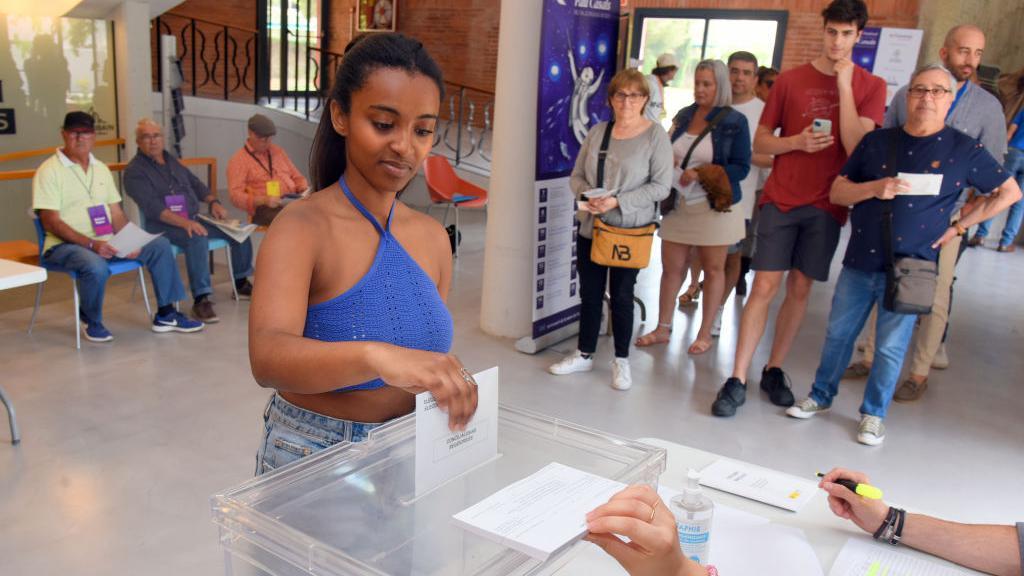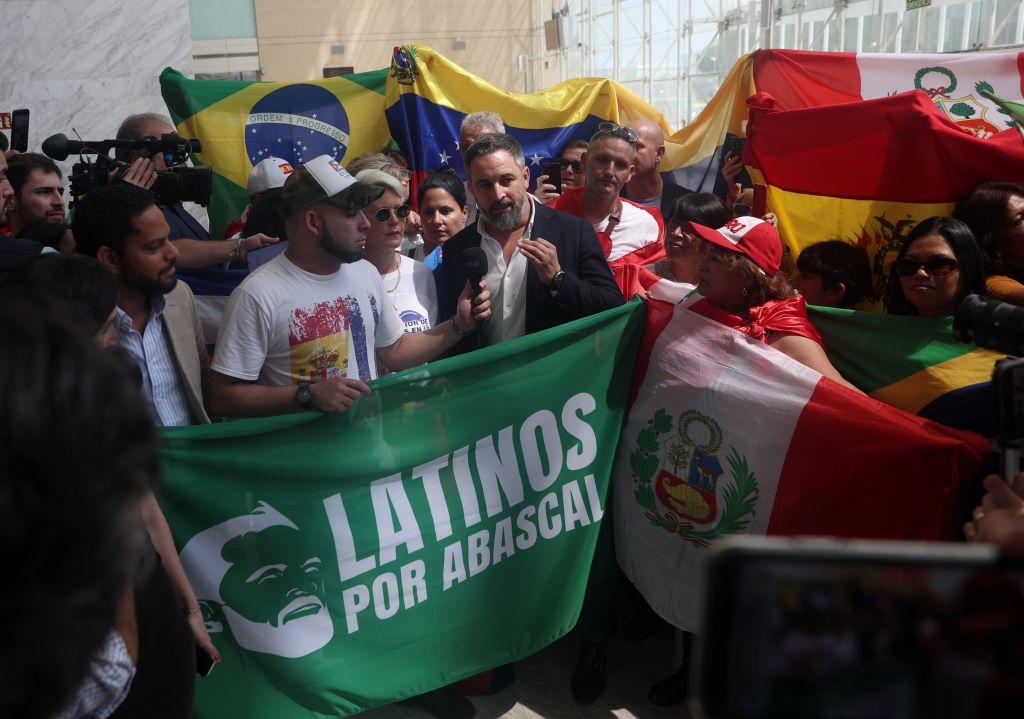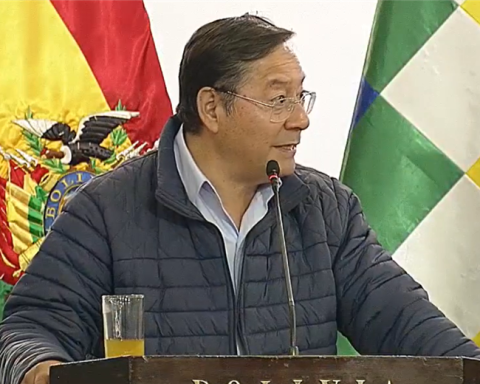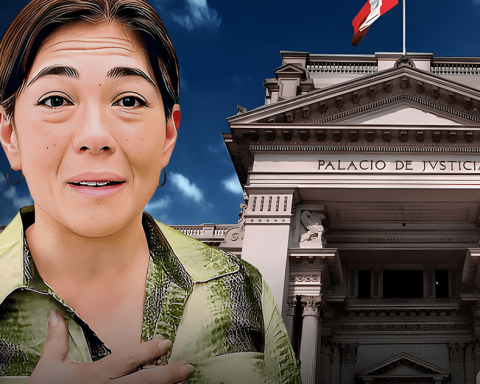July 21, 2023, 6:52 AM
July 21, 2023, 6:52 AM

The inauguration of a softball field, the game similar to baseball that is so popular in the Caribbean, an act that starts with a Colombian evangelical preacher giving her blessing and where politicians shake their hips – or try to – to the beat of reggaeton or a song asking for a vote for a candidate whose rhythm and singer could well be from the Dominican Republic.
They are not campaign events in Latin America, but in Spain, where elections are being held this Sunday and where it was not usual to see this type of event in which the Latino vote is so clearly appealed to.
But in recent years the importance of this group has grown.
This is attested by Laura Morales, Professor of Political Science at the Institute of Political Studies in Paris.
She has been doing studies on the electoral behavior of migrants in Spain since the early 2000s and saw how it went from not caring to anyone to the fact that the importance given to the Latino vote has been greater in about five years.
And this is how it is perceived in the electoral acts and strategies that the main political parties in Spain have adopted for the elections this Sunday.
Although analysts and parties start from a problem: they do not know with certainty what percentage of the electorate they are addressing.
a matter of data
How many people from Latin America and nationalized as Spanish are there in the country?
As we say, it is not so clear.
“The data is difficult to calculate and the figures we handle are approximate,” explains Morales.
The latest figures from the National Institute of Statistics (INE) of Spain are from January 2021 and they say that around 1,500,000 foreigners with Spanish nationality and the right to vote were residing in Spain at that time.
But in addition, the professor points out, the total nationalized population since the 1980s, for example, is not known, nor is it known what part of the Spaniards who vote from abroad have dual nationality or, within the country, if only a first generation of migrants from Latin America or also their immediate descendants “who were surely born with Spanish nationality” are counted.
With this approximate count, it is estimated “that around 10-13% of the electorate has this origin.”
Given that weight, says Morales, there is not so much specific attention given to this group, made up mainly of Ecuadorians, Colombians, Venezuelans, Argentines, Peruvians, Dominicans and Cubans.
But, then, why now have they put more focus on it?
On the one hand, there is awareness that the potential number of voters is greater than 10 or 15 years ago.
But also to accumulate political credit in the medium term.
“It is quite probable that between now and the next general elections or in 10 years a quarter of the electorate will be of immigrant origin,” says the professor.
A “short handle”
Two parties in particular, the PP (right) with the candidate Alberto Núñez-Feijoó in front and Vox, from the extreme right and led by Santiago Abascalhave made a more visible campaign to capture the Latino vote.
This is because they have “a certain perception that these (Latino) voters may share similar values regarding family models, a more conservative religious vision,” says Morales.
An opinion held by Carmen Beatriz Fernández, a political scientist based in Spain but from Venezuela, precisely a community to which both parties have addressed their discourse because, due to the experience in their country of origin, “they make them associate more with the values of the right”.
They are fishing grounds for votes “easy to attract with a relatively limited cost of electoral mobilization, without great effort, a low hanging fuit,” says Morales, or as they would say in Venezuelan, a “short mango.”
“Without Hispanics it is a failed campaign”
The strategy of the PP, the favorite party to be the most voted this Sunday, according to the polls, has a key point in Madrid, where the president of the community, Isabel Díaz Ayuso, has made permanent nods to Latinos.
The “Hispanics with the PP” initiative was born there, an organization within the party that spread to Galicia, the Canary Islands, Valencia or Andalusia to “mobilize the Hispanic vote”, explains Michael Ferreira, a Venezuelan-Portuguese member of the group.
“In the United States, talking about a campaign without Hispanics is a failed campaign. The Hispanic vote sets a trend and is relevant and Spain is entering this dynamic, the PP is promoting it ”, he affirms.
They do it with small acts for each region of the country, other more general ones where the Spanish flag and those of Latin American countries are mixed or in the increasing inclusion in their lists of politicians with origins in Latin America.
But also lately, with acts that have attracted the attention of the media and have not been without criticism.
For example, an act called “Europe is Hispania” where the candidate Núñez-Feijóo together with Díaz Ayuso moved to the sound of the well-known song “El tiburon” by Proyecto Uno sung live by the Dominican Henry Méndez and which was part of the campaign for the mayoral and autonomous community (region) elections last May.
The act had the participation of the Colombian evangelical preacher Yadira Maestre, controversial for her postulates.

The fear of “communism”
The approach to the evangelical community, which counts among its followers with a good part of the Latino community, has also been done by Vox as part of its strategy.
For these specific elections they created the initiative “Latinos for Abascal” to capture the vote.
For its launch, they used a jingle made from lively rhythms and lyrics that could well be heard in a typical campaign in Latin America and where the flags of Cuba, Venezuela, Brazil or Bolivia are seen.
But the discourse towards the Latin American community is an exception in Vox, a political party that has strong anti-immigration rhetoric.
They make this distinction with Latinos because it is easier for them to “assimilate to the ‘Spanish ethnic group’ because they share the same religion, language, customs, worldview and history,” agree Political Science professors David Lerín Ibarra (Complutense University) and Guillermo Fernández-Vázquez (Carlos III University).
And it is an easy vote to capture in some niches, as Morales explained.
Some Latino sectors “are sensitive to appeals about the potential dangers of a supposed government that includes communists,” says Morales.
“Less reggaeton and more rights”
The political spectrum of the left for these general elections is occupied, on the one hand, by the PSOE (center left), with the current president Pedro Sanchez to the head.
On the other is Sumar, a newly born coalition that protects under its umbrella different groups of the left and that is led by the current vice president of the government Yolanda Diaz.
Morales points out that the PSOE and the left in general have previously had initiatives to address the Latino vote, although due to their structure and the characteristics of electoral campaigns in Spain -more general discourse, more generic campaign, without segmentation of messages and of a more limited level and extension-, it no longer has such a leading role.
Hana Jalloul, Secretary of International Policy and Development Cooperation of the PSOE between 2020 and 2021 and Secretary of State for Migrations says that her party believes in migration, “and we have worked for their socio-labour inclusion, to give them access to work and give them papers”.
For this campaign, the left have focused more on circles of trust, acts or coexistence where migrants in general are explained their rights, protocols against xenophobia or racism.

“We will not dance reggaeton, but we give migrants rights. Facts, not words”, Jalloul launches and highlights the nationalizations of migrants that President José Luis Rodríguez Zapatero made in his day or the granting of residence for humanitarian reasons implanted by Sánchez for Venezuelans.
This is a key point of the left’s discourse not only towards the Latino community, but towards migrants in general: “Systematically remember that Vox is against migration regularizations,” says Morales.
But as Laura Morales maintains, the left in general does not quite find a balance in its discourse to address this electorate that “could potentially vote for them because the universal policies implemented by the coalition government (PSOE-Podemos, currently in power) are beneficial to them.”
An electorate as broad as Latin America
Although the importance of the Latino vote is greater than in previous years, Spain is a difficult case to mobilize this voter.
For example, you cannot make a differentiated speech, something that in the United States occurs just by changing the language. In addition, in Spain one must be careful, says Morales, “so as not to do something ethno-racial, which could offend the community and mark them as migrants when they already have nationality.”
And it is difficult to prop up a specific discourse, because the collective in Spain is as heterogeneous and varied as Latin America is wide.
For example, Venezuelans vote more to the right, while Argentines, Uruguayans, Colombians, and to a lesser extent, Peruvians, tend to vote to the left. While Ecuadorians have a more volatile vote, according to experts.
And they do so, one and the other, in similar proportions, which is why, Morales explains, “it cannot be said that the Latin American collective as a whole is a vote that favors a specific political spectrum.”
The challenge for the coming years in Spain is for the political parties to find a way to address a population that, on the one hand, is growing but, on the other, barely has data to understand its electoral behavior.

Remember that you can receive notifications from BBC Mundo. Download the new version of our app and activate them so you don’t miss out on our best content.













